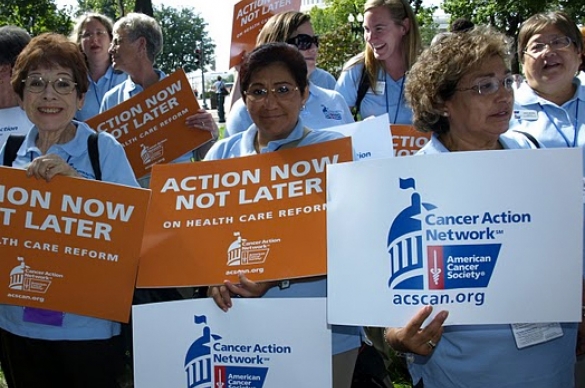Medicaid is the primary health insurance program for low-income Americans, offering quality, affordable, and comprehensive health care coverage to millions of people – including those with cancer, those who will be diagnosed with cancer, and cancer survivors. Having health insurance through Medicaid helps Americans stay healthy, go to work, care for their families and pay their bills. The Medicaid program also helps communities, hospitals, schools, and economy thrive.
